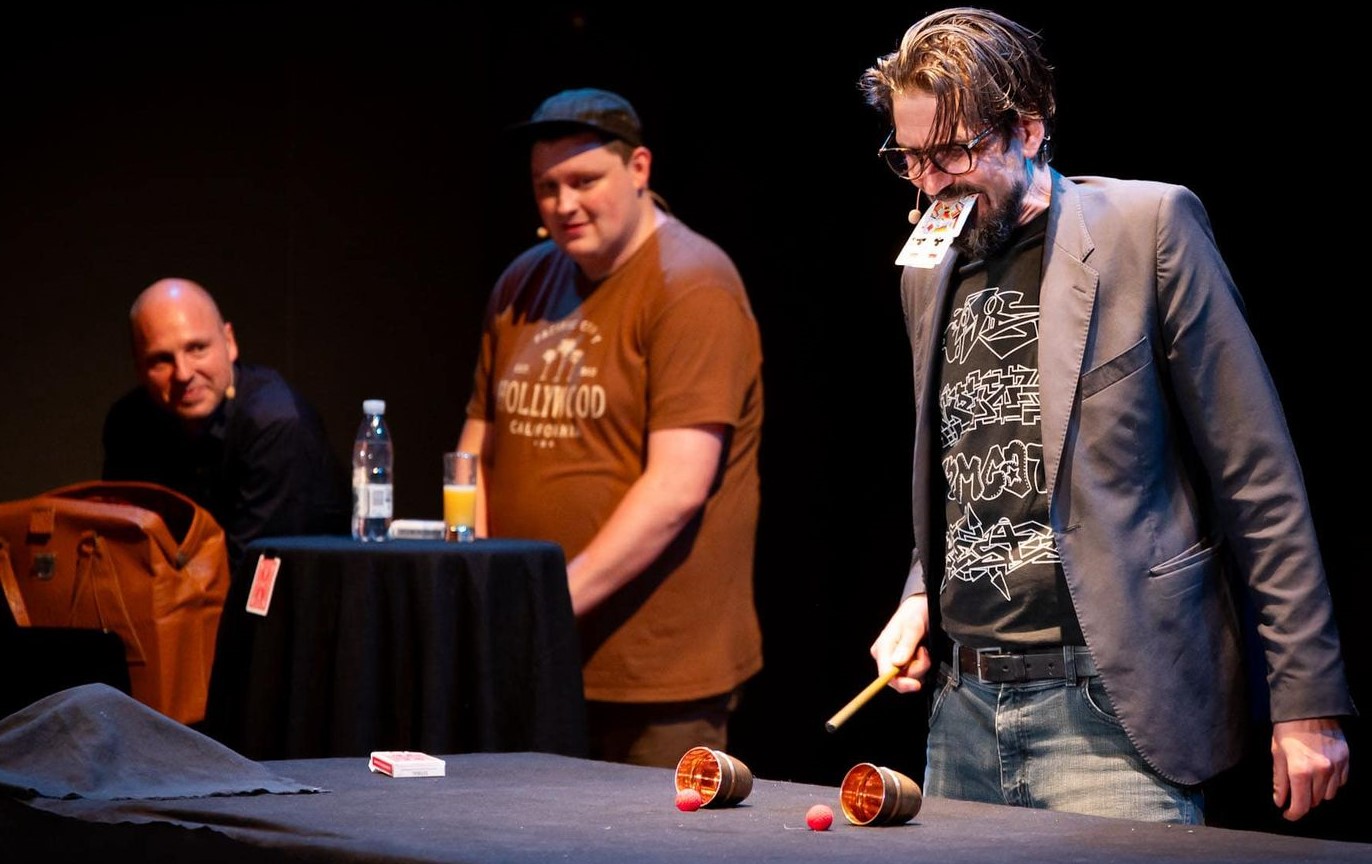
The magicians explore the impossible
"In Denmark, we have a long, proud tradition of magic," says Mikkel Knudsen, Director of the Circus Museum. Magic has been a prominent genre in the entertainment industry for decades, and immediately after World War 2, Denmark's magicians became world champions. Immediately after World War II, Denmark made a name for itself with several world champions. At the same time, the community organised itself into the magic clubs that still form a solid foundation for the art form.
Today, we still have very talented magicians and many of them also perform elsewhere than on the traditional stage. This is partly due to the fact that there aren't as many public stages as in Germany, for example, where the variety tradition is still a vibrant part of the entertainment landscape. So a life as a live stage magician, like most other artists, involves international touring.
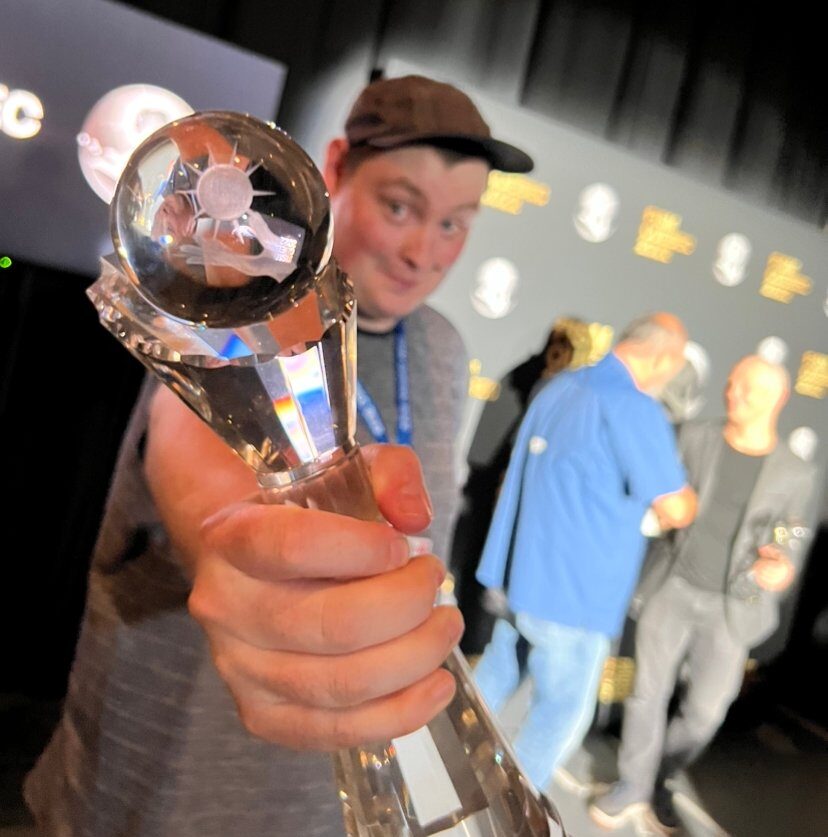
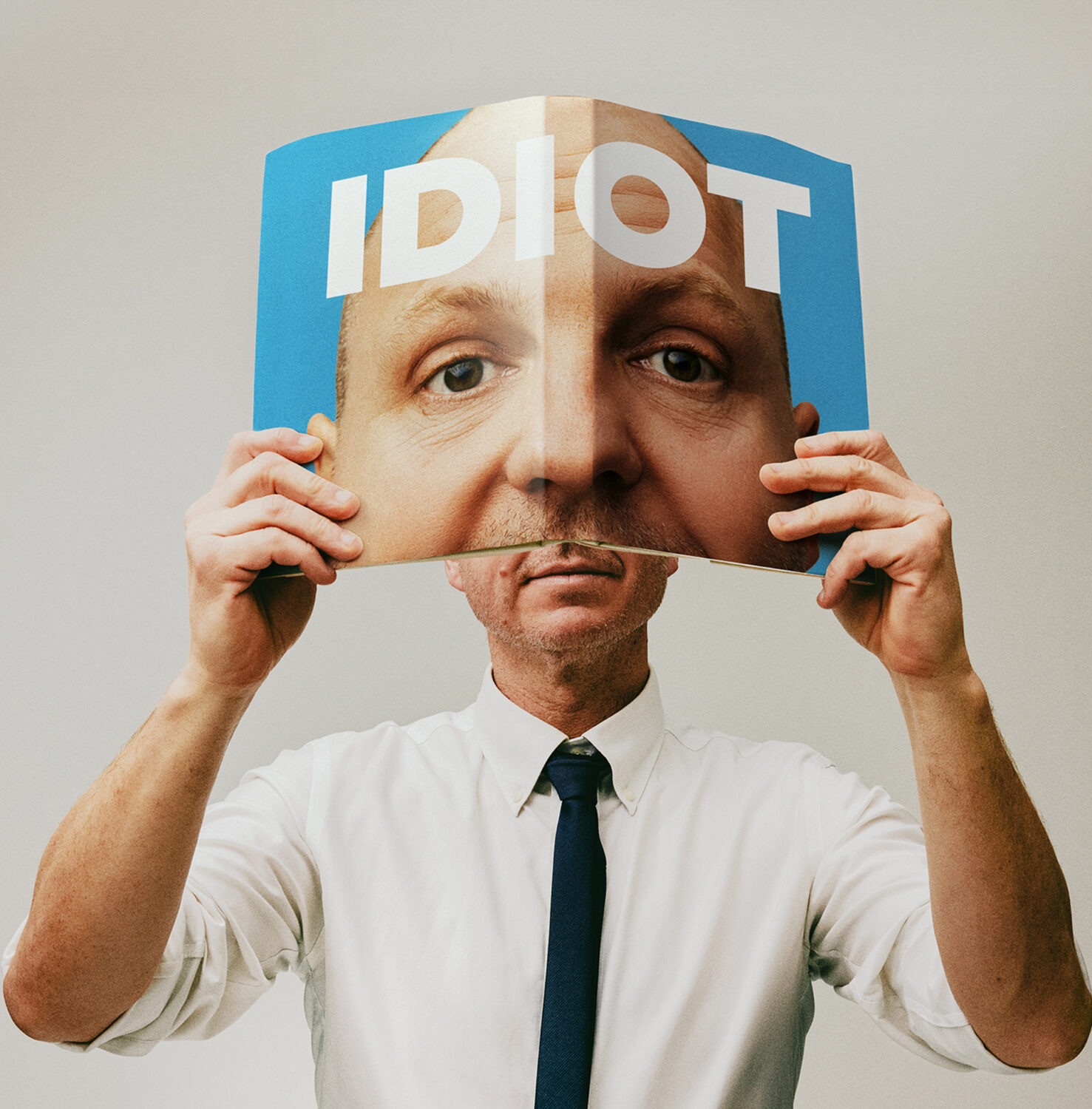
Mortenn Christiansen (left) is Danish, Nordic and world champion in Close Up. Rune Klan (right) combines magic with humour about life's dilemmas in the show 'Idiot'. Press photo.
It takes training
However, in Mikkel Knudsen's experience, there is still a good environment and jobs available for magicians. "It's a well-known genre and artists like Rune Klan have shown that it can be combined with stand-up, which creates a larger market for corporate events," he says, and also mentions that magicians are good at negotiating salaries and creating artistic development by sparring with each other.
"They are happy to share their secrets, because the most important thing is how to build an original show. There are only so many tricks, so you have to scale and twist them. And then - as with all performers - it's about willpower, a lot of training and going the extra mile," he emphasises, citing Mortenn Christiansen, a world champion comedy magician who has learned his show in Spanish to expand the number of countries he can perform in.
Mortenn Christiansen, like many others, has been performing magic since he was very young. On his way to the world championship in comedy magic, he became both national and Nordic champion in the discipline Close Up Magic, where the magician moves close to the audience. A skilful genre that, like comedy magic, is popular at corporate events, where many magicians earn a significant part of their income.
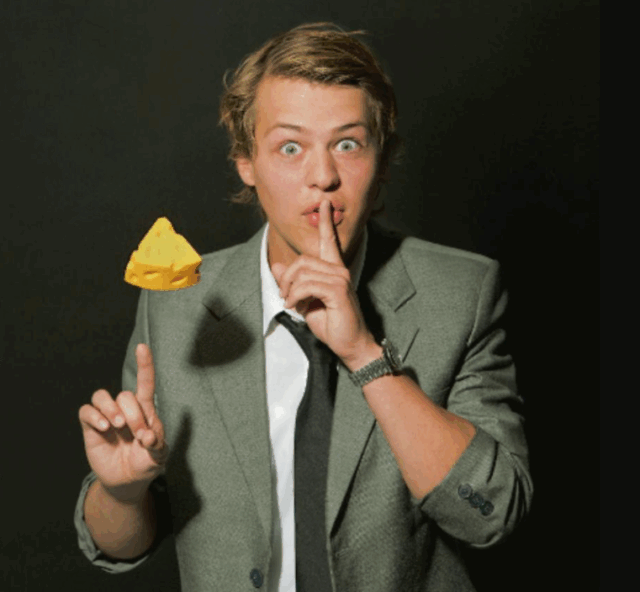
As both a magician and actor, David Tholander mixes magic with other forms of performing arts
Global inspiration and genre blending
The Danish magicians are globally orientated with shows that draw inspiration from both history and abroad, explains Mikkel Knudsen. "Rune Klan is inspired by American David Baline's early shows, which also involved comedy. The sub-genre called speakmagic has always been there, but Rune originally takes it a step further with Danish themes."
The conjurer David Tholanderwho also trained in physical theatre at the École Internationale du Théâtre Jacques Lecoq in Paris and is part of the French-based theatre company The Krumple, works in the genre that mixes magic with other forms of performing arts. "Magic is still closest to my heart, but I'm exploring more of a magical universe where magic mixes with other visual forms of performing arts. It creates a poetic language where magic is used as a dramaturgical tool," he explains, who sees it as a general trend that magic is seen as more than technique.
"Pure technique can be aesthetically beautiful and intelligent, but magic is not only about how you do it, but also about the artistry. What does it say and how does it make us feel? Magic is showing things that seem impossible but are not, and can be a powerful way to open the heart and mind to new feelings, thoughts and perspectives on the world around us and our place in it," says David.
Old technology in new stories
In his upcoming show Why is it getting dark created by his Örebro-based company Korbo magic is one of several storytelling tools.
"The performance is based on an ancient creation myth about how light is given back to a world in darkness, where we, among other things, take a look at the magical places in the story. When I start creating magical images, I don't think about technique, but imagine what could happen if everything was possible. For example, how the light of the world can be represented by a light that flies over the audience and then gets caught in a fishing net. Then I test the methods I know and problem solve until it works. A trick typically consists of a series of secrets that are combined. Most often based on an existing technique that I put into a new story or universe," explains David Tholander.
He believes that the mixed model is on the rise in Denmark. "It's like contemporary circus, but this development in magic didn't really happen until 20 years later. However, there are many directions at the moment, also with the digital possibilities. A genre such as mental magic has also had a great development and appeal to the audience. This leaves its mark on the new magicians, because when you see something cool, it naturally inspires you."
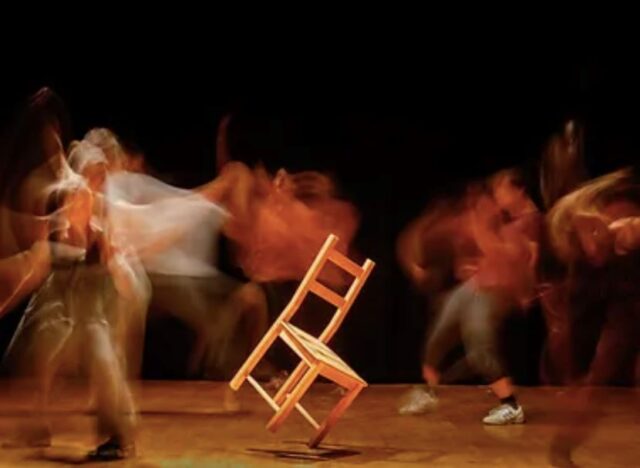
Kompagniet Korbo works with magic and illusion art - which can also be experienced at the Allo Korbo festival.
Mentalism shakes up worldviews
Mental magic is a very old sub-genre that is also known by names like mind reading and spiritualism. A magician like Jan Hellesøe has popularised the genre through his current TV show, The brain on the star, where he creates different, entertaining portraits of famous Danes through hypnosis.
"Mentalism shakes our world view of what is possible even more than when something is magicked away. It's a grey area that plays with the possible. Reading minds seems more possible than making an object disappear. In the circus, most disciplines push the possible to get close to the impossible. Magic typically goes for the impossible, but mind reading is an interesting frontier that intuitively approaches the possible," says David Tholander and elaborates:
"Today, with AI prompts, we see things that are impossible on screen. This creates uncertainty about what to believe online, which makes a shared, live experience even more authentic. Maybe reality will trump the web at some point, because experiencing something that seems impossible in the same room at the same time - that feeling is more visceral, i.e. it goes straight to your gut and can give the experience of being connected to the great mysteries of life."
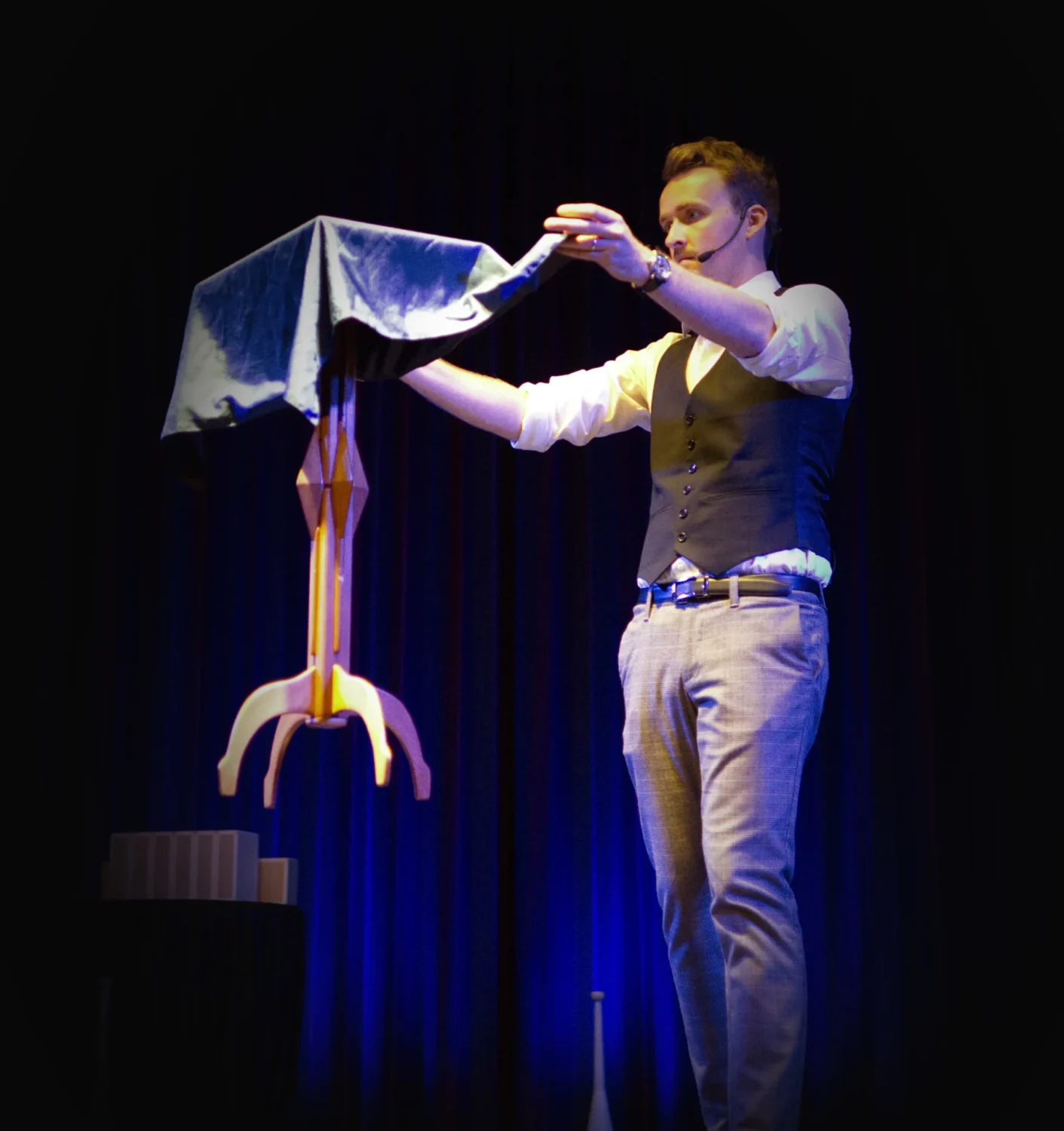
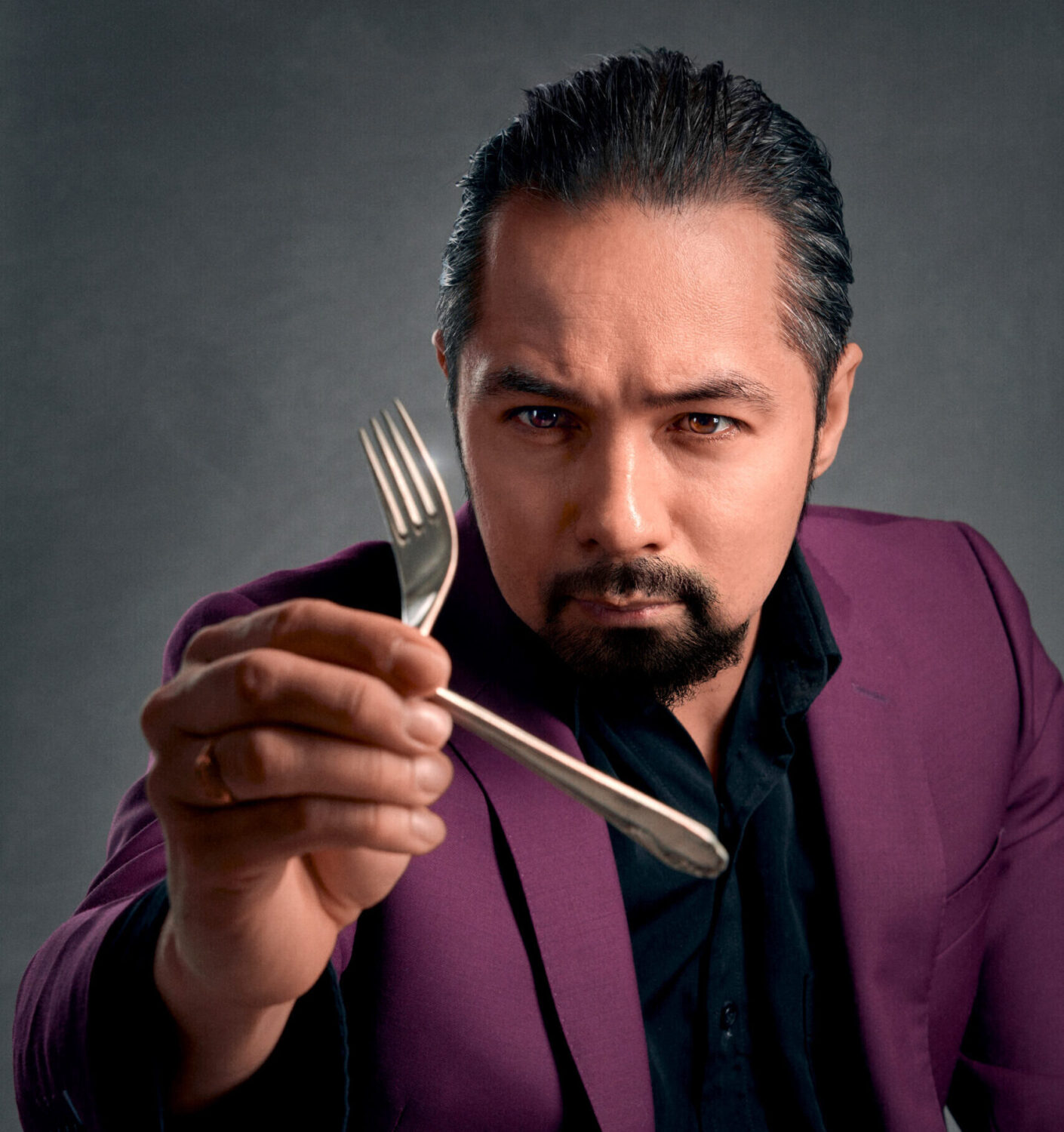
Andreas Brunsborg (left) mixes psychological manipulation with comedy and magic. Sunny Cagara (right) performs magic, mind reading and stand-up magic.
The future is both art and craft
The core ingredients of magic can also be used more operationally with a personal or organisational aim to create development or insight. This could be the use of hypnosis in smoking cessation, but also in lectures that combine magic with psychology to uncover human perception and cognition.
Still other magicians, like other artists, find jobs as consultants in the business world, where playing with illusions and the ability to concentrate can be used in both development processes and concrete design. This can be in the form of workshops that focus on storytelling, creative problem solving or improvisation, and is in itself a creative use of the craft that plays with the brain's imagination.
David Tholander is also often hired to invent magic for music or performing arts productions, teaching either technicians or actors to create magical images. He finds that magic is increasingly being recognised and supported as a performing art.
"I hope and believe that theatres will become even more aware of this, making it easier for magicians to help create works that enter into dialogue with other genres, so that a wider audience can experience a broader palette of magic. We organise the festival ourselves Hello Korbo on Ærø, and there's Illusions in Horsens, which helps develop audiences, artists and formats," he says, and finally points out that education also plays a role.
"We have no education here and therefore no natural network in Denmark that connects us to the performing arts institutions. Perhaps a course at the performing arts school would reduce the distance between the genres - and the distance to the stages," he concludes his perspective on the Danish magic scene, which he generally perceives as a lively environment with many genres energised by a strong young generation.
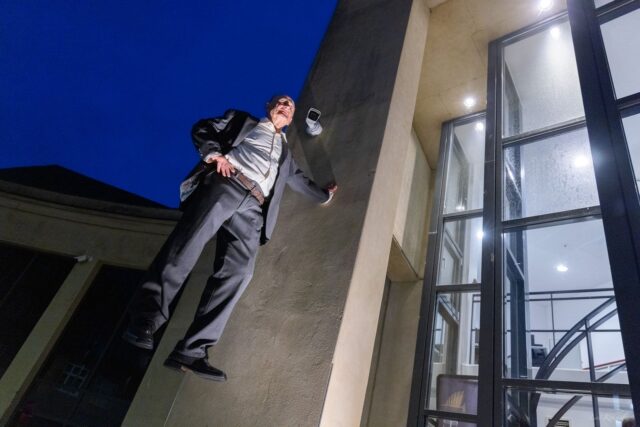
Surprisingly blueiLLUS!ONS Festival 2024. photo: Lise Kokholm
The Nordic region's largest magic festival in Horsens
The magical festival iLLUS!ONS brings all forms of magic to Horsens. The festival shows how the classic art form of magic is also relevant in an updated and contemporary version. The festival will be held for the third time during the autumn holidays.
Series of articles about artists specialising in the circus genres
During 2025, the Danish Artist Association will be highlighting artists in the circus genres. In a series of articles, you can follow the artistic expressions that artists such as clowns, entertainers, magicians, acrobats, aerial artists or jugglers bring to the Danish stages.
Text: Freelance journalist Anne Liisberg

